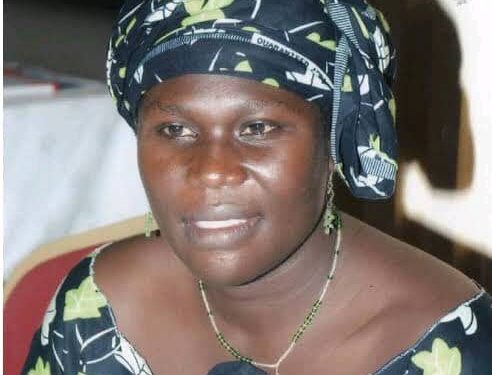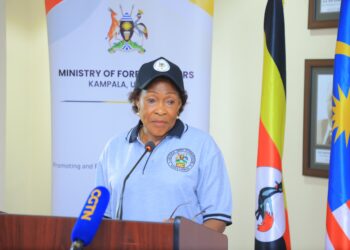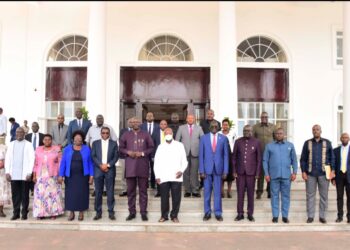Climate change in Uganda is becoming extremely disastrous because many people have lost their lives and property, including gardens destroyed, due to climatic disasters like floods and drought.
This has caused serious alarm hence MPs and several environmental activists want the Education Ministry to consider the quick integration of climate change studies into national schools’ curriculum.
This, they contend will work towards heightening awareness on disastrous effects of unmindful environmental practices among Uganda’s youngsters.
On January 27th, 2023, a section of MPs and environmental activists converged at Grand Global Hotel, in Makerere Kikoni and illuminated on the need to raise consciousness among Uganda’s young generation, about how climate change is an existential threat; in order to spark action.
These legislators who were blunt and forthright in their assertions were led by Hon. Aogon Silas, the MP for Kumi Municipality and Hon. Obigah Rose, the woman MP for Terego district.
Hon, Aogon Silas in particular was a fervent proponent of the idea.
He bluntly asserted that climate change issue is not just about planting trees, but also entails population adaptation and mitigation, which stems from availing information about global warming to the public, most especially the youth.
“We should embed climate change studies in our curriculum. Can we now make it a point that this is implemented and the kids are made to know about climate change?” he pleaded.
Hon. Aogon also urged the Ministry of Education and Sports to work out mechanisms for training and equipping teachers with sufficient knowledge on climate change, such that they pass on this vital data to learners.
The outspoken legislator bitterly criticized politicians in Uganda who do not labor so much to include climate change issues in their respective manifestos at a time when they are soliciting for votes, and also implored the church to join the fray against environmental degradation.
“We the traditional leaders, the church should also come out openly and talk about these topics. Leaders, candidates should focus on climate change,” added Hon. Aogon.
Hon. Obigah Rose on her part highlighted the need to address the climate change threat by employing a multi-pronged strategy, which not only involves educating learners about the predicament, but also craft mechanisms to outdo the challenge of the high rate of school dropouts.
“In Kakumiro, the dropout rate is over 60%. Even if we embed this on the curriculum, we need to first go back in our villages and impart on our young generation to get back to school. We are talking about curriculum, I don’t know who is going to seat in the classes,” revealed Hon. Obigah.
She urged Uganda’s youth who form 80% of the nation’s population to forge a united front against environmental degradation, and embark on greening activities like proper disposal of waste material, tree planting, among others.
The prime aim of the climate change financing dialogue was to discuss mechanisms, which Uganda can leverage to obtain the necessary funds for effective climate change mitigation and adaptation.
Edwin Muhumuza, the team leader and founder of Youth Go Green urged government to strengthen state institutions in the docket of environmental conservation, and also ensure proper utilization of the available funds to fight global warming.
“Government does not have enough money for adaptation and mitigation. We have to build capacity for our institutions. When we get this money, do we use it for the intended purpose?” Muhumuza implored government.
Among other ways, he suggested writing funding proposals and present them to donors, on top of talking to policy makers to help the state raise money needed to battle climate change.
According to the climate risk country profile for Uganda produced in June 2021 by World Bank, global warming has shot up, to unprecedented levels in the last 60 years due to unpredictable climate shifts and patterns, engineered by human activities like lumbering.
This has in turn complicated agricultural practices, something that has endangered food security and safety. For instance; unpredictable rainfall patterns in Kikuube district have wrecked havoc on people’s gardens, with pests like the army worm obliterating crops, something that has led to famine.
Primus Bahiigi, the Program Manager at Netherlands Institute for Multi-Party Democracy said that Uganda’s limited action to curtail climate change has taken a heavy toll on the national GDP.
“The research we have done shows that the wastage, what we loose specifically in agriculture, water and natural resources is about 4% of our national GDP, that is USD. 108 billion, accounting for USD 5.6 billion and if you convert it into shillings, that’s a lot of money that would support the entire local government,” said Bahiigi.
“Unless there is greater political consciousness, we are no longer getting enough water. Leaders must look at climate change as an existential threat and they should be devising means to solve it,” Bahiigi added.
Accordingly, Uganda needs USD 5.5 billion to finance climate change interventions by 2030 but authorities in Kampala say the country can manage only 30%.
Cabinet in the 2022/23 FY national budget approved UGX. 628 billion to support climate change adoption and mitigation measures, including re-surveying and marking 6,200 square kilometers of boundary to increase national forest cover from 12.4% to 850 kilometers of degraded land.
However, none of these funds were set aside for the actual tree planting to restore degraded natural forest cover.
Do you have a story in your community or an opinion to share with us: Email us at editorial@watchdoguganda.com












